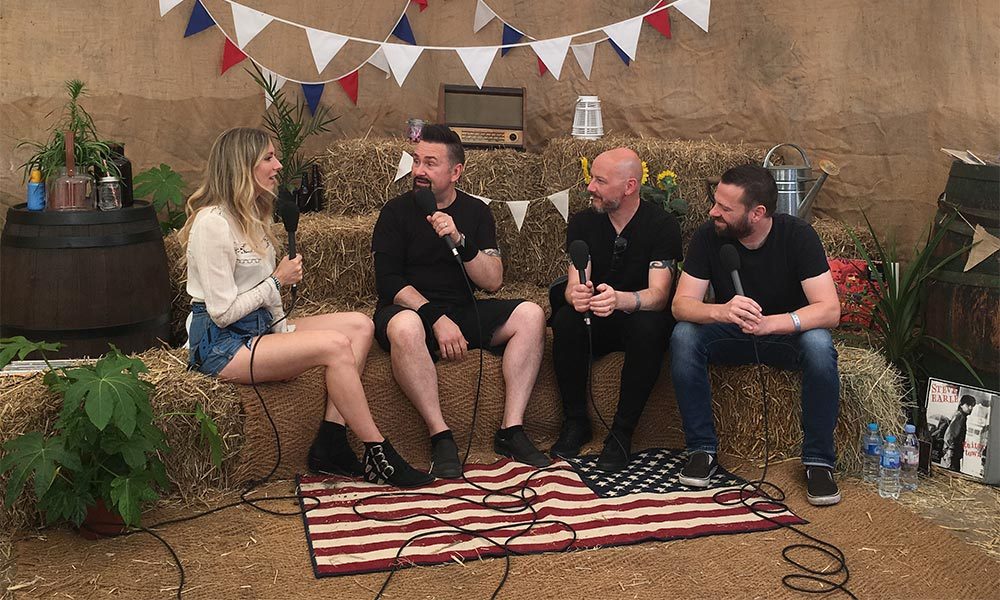Watch Exclusive Ramblin’ Man Therapy? Interview
Mighty Northern Irish alt-rockers Therapy? were always going to be one of the bands on everyone’s lips at this year’s Ramblin’ Man.

A consistently popular live draw, mighty Northern Irish alt-rockers Therapy? were always going to be one of the bands on everyone’s lips at this year’s Ramblin’ Man Fair. They presaged their incendiary Saturday afternoon set on the festival’s Planet Rock Main stage with an interview with uDiscover Music’s Kylie Olsson.
First formed in 1989, this much-acclaimed trio, led by Andy Cairns, are of their homeland’s biggest exports and they remain a ferocious live band. They were making their Ramblin’ Man Fair debut this year and – when they weren’t turning out the contents of their pockets for Kylie – the Therapy? boys were keen to discuss a range of subjects.
Classic albums such as The Beatles’ “White Album” and Nirvana’s Nevermind (which long-term fan Cairns describes as sounding “like The Police meets Cheap Trick” on first listen) come up, but much of the chat revolves around achieving longevity, and Therapy?’s 30th anniversary, which they are set to celebrate in 2019.
“I don’t think it works for us personally,” bassist Michael McKeegan says on the subject of inter-band friction making for the creation of better music. “Creative friction has a shelf-life. You might get a couple of good artistic statements, but for longevity, no, it’s too much stress.”
On how Therapy? have continually evolved and made a point of never making the same kind of record twice, McKeegan reveals: “We don’t really have a formula, like, say, AC/DC, Bad Religion and Motörhead – all amazing bands, but with quite a strict template. [Because we don’t have that sort of template] that keeps it fresh for us and for our fans.”
Also, Andy Cairns offers some insights on how Therapy? avoided being pigeonholed as a “grunge” band and went on to create their multi-platinum 1994 album, Troublegum, on their own terms.
“At that time, agitated, angry guitar music was very fashionable and we’d just signed to a major record label, so it was very easy for them to put us in that category and get press and front covers off [grunge],” he reflects. “What was good for us was that we’d already got three or four years under our belts by then, so we knew that after the [grunge] wave had gone, we’d still be there.”
Watch the full interview above.












